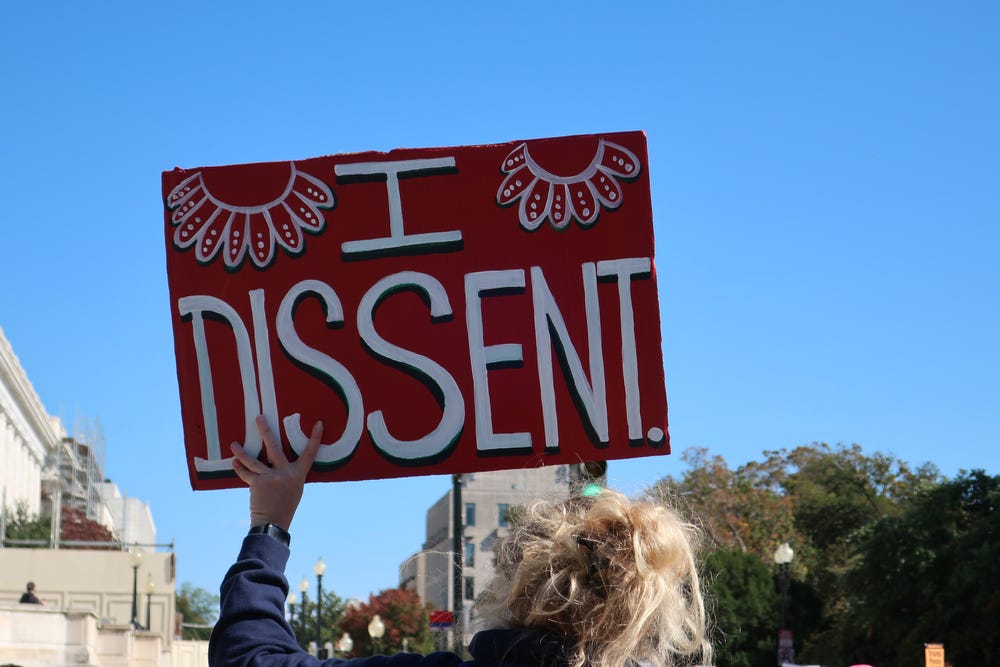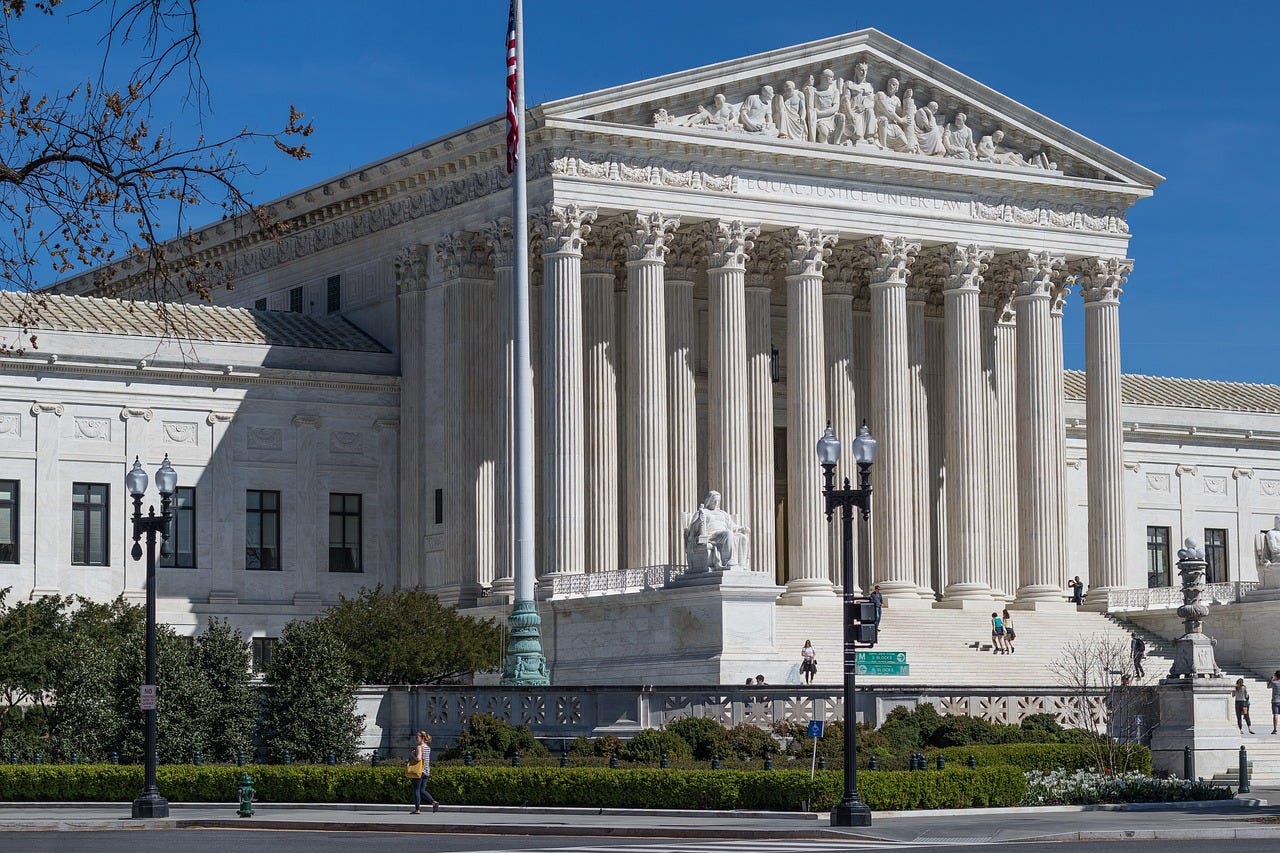E-Pluribus | May 31, 2023
How Noam Chomsky helped degrade the discourse; overcoming the shipwreck of our digital culture; and reflections on affirmative action as its end (likely) nears.
A round-up of the latest and best writing and musings on the rise of illiberalism in the public discourse:
George Case: Manufacturing Dissent
Distrust of the media is nothing new, but the ubiquity of media in all its forms magnifies the issue. At Quillette, George Case fingers Noam Chomsky as bearing significant responsibility for fomenting that distrust before the digital explosion that has taken the Us vs. Them mentality to new heights.
It’s all Noam Chomsky's fault. Well, it’s not directly his fault, but Chomsky’s influence on generations of pundits, political junkies, and ordinary people has been wider than anyone 40 years ago might have hoped or feared. A scholar of linguistics at the Massachusetts Institute of Technology, Chomsky gained international renown with his trenchant criticisms of American foreign policy from the 1960s onward. He also issued warnings about the power and influence of propaganda and mass manipulation in open societies that reached an even greater public, including many who had never read his books or checked his research.
[ . . . ]
Funny thing, though—by this point, the notion that the journalistic establishment was a tool of powerful elites had already been embraced by a separate constituency of readers and listeners, except the elites they detected were not those identified by Carl Jensen, Amy Goodman, and Noam Chomsky. The process of manipulation was not in dispute—all seemed to agree that popular consent is manufactured and illusions are necessary to keep us in line. That left the questions of exactly what we are consenting to and through which illusions. The Right, no less than the Left, found plenty of evidence to back its theory that almost everything dispensed by big newspapers, networks, and studios could be construed as lies, disinformation, and propaganda. Conservative pundits identified the spread of R- or X-rated cinema and television, the investigative reporting that focused relentlessly on Republican political scandals, the constant attention given to the grievances of this or that new class of victims, the commonplace portrayals of military or business leaders as dangerous villains, and the steady debunking of historic heroes as racist white males. Sometimes, the same outlets excoriated by one side were targeted by their opponents for different reasons. While Chomsky attacks the New York Times as a mouthpiece of the military-industrial complex, for instance, Ann Coulter and Fox News’s Sean Hannity described the paper as a shill for liberal relativism. They all agreed that the media was intentionally misleading the people to fulfill a larger, secret agenda—they just disagreed about what the agenda really was.
And here we arrive at Chomsky’s legacy of bipartisan paranoid grievance. In 2023, nearly every platform of information and opinion is characterized as either Ours or Theirs, depending on who’s assessing it, and commentators with millions of followers complain that they’ve been shut out of the public conversation. With the emergence of the Internet and social networking, even those who can’t tell Karl Marx from Mark Zuckerberg routinely insist that a concerted system of some kind or another is inculcating mindless obedience in a gullible public. The reliability of coverage varies and some sources strive a lot harder for neutrality than others. But try telling that to your neighbor or relative who’s lost down a rabbit hole of YouTube videos and QAnon posts. Today, it’s dissent that’s mass-produced, and useful consensus on any big topic is a distant ideal. Chomsky may not have invented this suspicion, but he did more than most to create the intellectual climate for its popularization. It was Chomsky who made it fashionable to discredit the official accounts of any event. It was Chomsky who formulated the paradoxical logic of decrying media bias through the media.
Read the whole thing.
Martin Gurri: The Psychopathology of Digital Life
While there are a few dissenters, most commentators today agree that our digital-dominated lives (and social media in particular) makes us susceptible to mental and emotional stresses that can degrade our quality of life. Martin Gurri argues at Discourse Magazine in his The Fifth Wave feature, however, that just as we have overcome physical enemies in the past, we can summon the courage to get the better of this virtual enemy as well.
Moral anxiety is the unhappy offspring of a profound structural dislocation: For two decades, the digital storm has pounded away at the landscape, leaving it shattered and unrecognizable to many of our ideals and customs. That’s the starting point, whether we like it or not. Repression of the information system isn’t a realistic alternative unless we adopt North Korean methods. To cure the American disease, we’ll have to learn to live with the web.
The first order of business is to rescue the millions of kids buried alive in liminal space. Those who murmur “Anything goes” strike the pose of liberators but in truth are abandoning the young to eternal confusion. The essential element is structure—clear and specific rules about what it means to be a functional adult, a man or a woman, a neighbor and a friend. Mastering structure—coming to terms with social reality—must be the goal of new-model rites of passage that will prompt young people out of Neverland into the tumult of history.
[ . . . ]
We must disestablish the cult of identity. Our fellow citizens should be free to believe in any nonsense they wish, including the reality of pregnant fathers and a Hitlerite America—but the rest of us, who are a large majority, must not be compelled to worship at the same pew by threats or bribes from government at any level, places of employment or billionaires with a bad conscience like Bill Gates or George Soros. A prolonged civil rights struggle confronts us, with the 2024 election the first significant battleground. A major objective will be to reconfigure the web into a means of inquiry rather than inquisition.
The most urgent task is cultural. We must challenge our finest imaginative spirits to nothing less than a second birth of American culture, in which the American experience, for all its loneliness and violence, and all the hours spent online, is portrayed the way it is and always has been: as a rush to the frontier and a humanizing adventure. The central character of movies and television series, songs and memes, will be the pioneer and the true eccentric instead of the thug and the designated victim. The web already is an incubator of artistic genius—it should be the battering ram to break culture free from the dead hand of Hollywood and Silicon Valley.
Read it all here.
Pamela Paul: This 1991 Book Was Stunningly Prescient About Affirmative Action
The Supreme Court will soon have the opportunity to write affirmative action’s obituary after several tumultuous decades. Pamela Paul has taken the opportunity in her New York Times newsletter to look back at Yale Law School professor Stephen L. Carter’s 1991 book on the subject that accurately foreshadowed where we stand today.
For [Stephen L.] Carter [in 1991], affirmative action was a necessary stopgap measure to remedy historical discrimination. Like many people today — both proponents and opponents of affirmative action — he expressed reservations about relying on diversity as the constitutional basis for racial preferences.
The diversity argument holds that people of different races benefit from one another’s presence, which sounds desirable on its face. But the implication of recruiting for diversity, Carter explained, had less to do with admitting Black students to redress past discrimination and more to do with supporting and reinforcing essentialist notions about Black people.
An early critic of groupthink, Carter warned against “the idea that Black people who gain positions of authority or influence are vested a special responsibility to articulate the presumed views of other people who are Black — in effect, to think and act and speak in a particular way, the Black way — and that there is something peculiar about Black people who insist on doing anything else.”
In the past, such ideas might have been seen as “frankly racist,” Carter noted. “Now, however, they are almost a gospel for people who want to show their commitment to equality.” This belies the reality that Black people, he said, “fairly sparkle with diversity of outlook.”
Given statements like this, it’s hard to imagine Carter welcoming the current vogue for white allyship, with its reductive assumption that all Black people have the same interests and values. He disparaged what he called “the peculiar relationship between Black intellectuals and the white ones who seem loath to criticize us for fear of being branded racists — which is itself a mark of racism of a sort.”
Read it all.
Around Twitter
Here’s part of a thread from someone justifying a hand-gluing protest at an appearance by Kathleen Stock at Oxford to discuss/debate gender issues. While characterizing Stock’s views as propaganda, dangerous and hateful, the hand-gluer does at least include a nod to free speech:
Via the Foundation for Individual Rights & Expression, if you want to talk about book banning, which it seems everyone does these days, then here’s some book banning for you:
And finally, don’t give anyone ideas, Nicholas Christakis!









